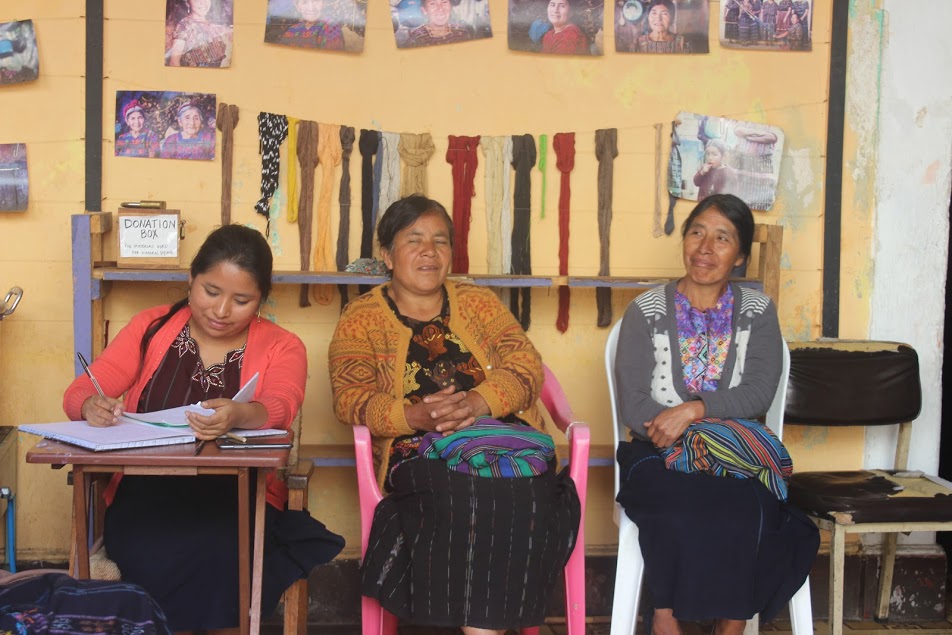
Women for Women
Share
I bet that any woman visiting Guatemala knows the daily struggle of keeping it together (or not) when being catcalled on the street. Although this misogynistic behavior can be annoying - and at times scary - it is far from the tough reality that many Chapinas (read. slang for Guatemalan women) face in their everyday life.
Not the newsfeed nor the national statistics from Guatemala are very encouraging when it comes to women’s situation. Violence rates in Guatemala are generally high, and this correlates to the country having the third highest rate of femicides – the killing of a woman (or girl) by a man because of her gender – in the world according to Small Arms survey. In 2018, the country had a gender pay gap of nearly 49% according to Statista, meaning that a woman will earn on average 49% less than what a man would. Furthermore, following the election in 2019, only 13% of the seats in congress are filled by women (Electionguide), and only 2% of municipalities were run by women in 2014 (UN Women).

For indigenous women, the hurdle to self-sufficiency is higher due to several factors. Partly because a large share of the indigenous population live in the countryside, where non-agricultural work is limited. Additionally, a large share only speak their Mayan dialect and no Spanish – the official language of the country. The illiteracy rate in 2011 for indigenous women was 48%, while the corresponding number for non-indigenous women was 19% (UN Women). Moreover, there are structural, legal and institutionalized forms of discrimination based on racism targeting indigenous women, leaving them vulnerable and many times unable to make a living for themselves and their families. The high levels of gang-related violence in the country is affecting indigenous women and children living in the countryside the most, and due to the highly corrupted judicial system, any prospects of legal justice for indigenous women are slim to none (ICNL).

Despite these very gloomy numbers, and rather pessimistic outlook, we can see a lot of hard work carried out on grass root level fighting for human rights and the empowerment of women. Especially in rural areas where indigenous people are concentrated. Although we were unable to find any statistics, just by googling “NGOs working with women’s issues in Guatemala” will give you an idea of what is bubbling beneath the surface. Around Guatemala, there are plenty of women’s cooperatives and NGOs working for the cause, see e.g., Asociación de Mujeres del Altiplano, Primeros Pasos, Fundaeco, UPAVIM among many others.
This is why we are very grateful for being part of the volunteer team for Trama Textiles. To get to see close up an organization where indigenous women work hard empowering themselves and each other. As you already might know, Trama is run 100% by indigenous women. How many organizations do you know run by females only? At Trama, every decision made from business expansion to choosing the size of a pillowcase, is made by women. The board of directors are women only. Every single product made and sold for the cooperative is made by women. The cooperative was founded by – guess who? – women! It was formed in the late 80’s as a consequence of the civil war wiping out a large part of the male population, leaving many women without a male head to provide for the family. The founders of Trama used their amazing back strap loom weaving skills to produce traditional textiles to sell to a broader mass. In this way, they managed to make a living for themselves and their families. And what better way than to do it side by side with other strong women working hard to put food on the table for their families?

Although the business idea of Trama is to produce and sell traditional textiles, the core of the cooperative is improving the livelihoods of the women. This is why the cooperative started and are planning several side projects, for example raising money to fund schooling for the cooperative’s children and workshops on subjects that are important for the women. Following the election of the new president of Trama last week, a long-term strategy for the cooperative was also decided upon. In order to sustain a future for the cooperative, it will start training more women in how the organization operates. This will not only make sure there are candidates ready to step up as leaders should the need arise, but also provide a handful of women with the opportunity to develop skills that they would not get the chance to develop otherwise.
We might be biased, but we just cannot get over how inspiring organizations like Trama are when it comes to empowering women. Not to forget, they do all of the hard work themselves!
